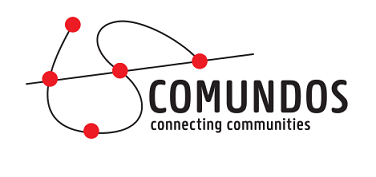Transformed lives in the Brazilian Semi-arid region.
My name is Fabiano Vidal, a Brazilian living in the Semi-arid region of the country.
For many years, the people of our region have suffered a lo t because of drought. Lack of water is an issue, not because of lack of rain, but because of it being irregular in time and space. The amount of rain is low and evaporation goes fast. Most of the Semi-arid region is covered by Caatinga, a unique vegetationof this region of Brazil which is composed of a wide variety of landscapes animals and adapted plants that only exist here.
t because of drought. Lack of water is an issue, not because of lack of rain, but because of it being irregular in time and space. The amount of rain is low and evaporation goes fast. Most of the Semi-arid region is covered by Caatinga, a unique vegetationof this region of Brazil which is composed of a wide variety of landscapes animals and adapted plants that only exist here.
This region has always been forgotten by the government, which did not invest in public policies. There have not been enough job opportunities for our people to survive. They have lived forgotten in poverty, starvation and without any perspective.
As a result, the people of the Northeastern region have been emigrating en masse to the Southeast going to big cities like Sao Paulo and Rio de Janeiro, fleeing the difficulties and looking for a better life, leaving their homeland behind. Most of the time, they have been working in construction, helping to erect these cities.
But over the last 15 years, I'm seeing this reality change.
 The government began to implement water harvesting technologies in the semi-arid region such as consumption and production tanks, underground pits and dams.
The government began to implement water harvesting technologies in the semi-arid region such as consumption and production tanks, underground pits and dams.
This has been bringing major transformation in the lives of the people of the northeast of Brazil, causing us to remain in the area. We have now started to produce our own food, such as vegetables and fruits, as well as small animals such as goats and chickens Always using an agro-ecological production free of pesticides, and respecting the environment. The surplus production is sold in organic markets, generating extra income to help with the family expenses.
These actions have transformed many lives, ensuring food and nutrition security and generating income in our region, providing a better life and opportunities.
Translation: Laura Hendrickx
A gift for Comundos
Over the years, Comundos has helped remote communities around the world by teaching critical thinking, media literacy and the use of communication technology.
To do this effectively, we need your support for computers, translations, courses and social media management.
Thank you .
BE11 1030 2973 8248




